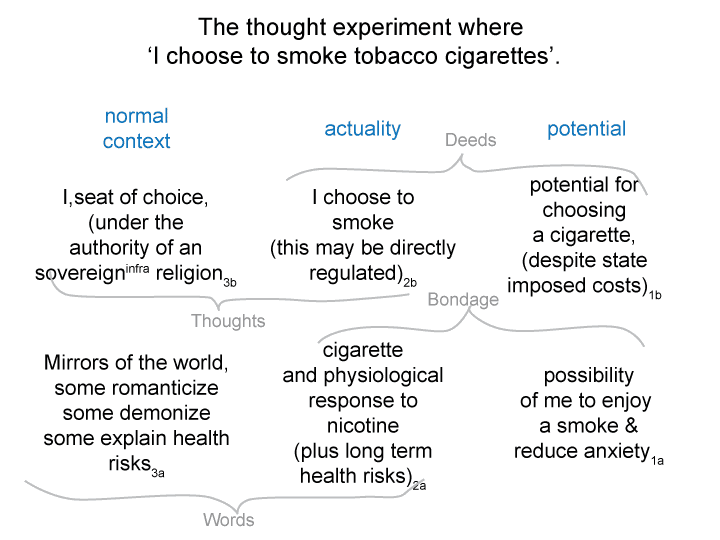Man and Sin by Piet Schoonenberg (1964) 2.3 NI
Summary of text [comment] page 83
[Each sovereigninfra demands ‘something2a’.
Often, this is a prohibition.
For example, smoking tobacco cigarettes was rendered taboo in the 1990s.
A health-minded sovereigninfra decreed, “The subject shall not smoke cigarettes.”
I want to explore this example because the elements of conversion are obvious and sensical.]
Man and Sin by Piet Schoonenberg (1964) 2.3 NH
[The passage of an institution from point 1 to point 3 changes the message of the institution.
The message goes from conversion by persuasion (or example) to conversion by the sword.
All sovereigns have the sword, so why not use it?
If the objectorganization is so important that it must be imposed by sovereign power, it is important enough to worship as an idol.
Thus, sovereign religions veer towards idolatry.]
Man and Sin by Piet Schoonenberg (1964) 2.3 NG
[Politics substitutes for religion, in the passage of an institution from point 1 to point 3.
Political machinations become a screen for religious convictions.
There is much to be said about this.
However, the topic is far from Schoonenberg’s text.]
Man and Sin by Piet Schoonenberg (1964) 2.3 NF
[There are three types of infrasovereign religions:
- The first could grasp for sovereign power (religioninfrasov) but does not because of its own internal rules (and devotion to a religionsuprasov). These could transition to point 2 by getting around the rules.
- The second grasps for sovereign power in order to impose its objectsorganization on all sovereign subjects (religioninfrasov).
- The third imposes it objectsorganization, because it belongs an alliance that has grasped sovereign power (religionsov or (infra)sovereign religion).]

